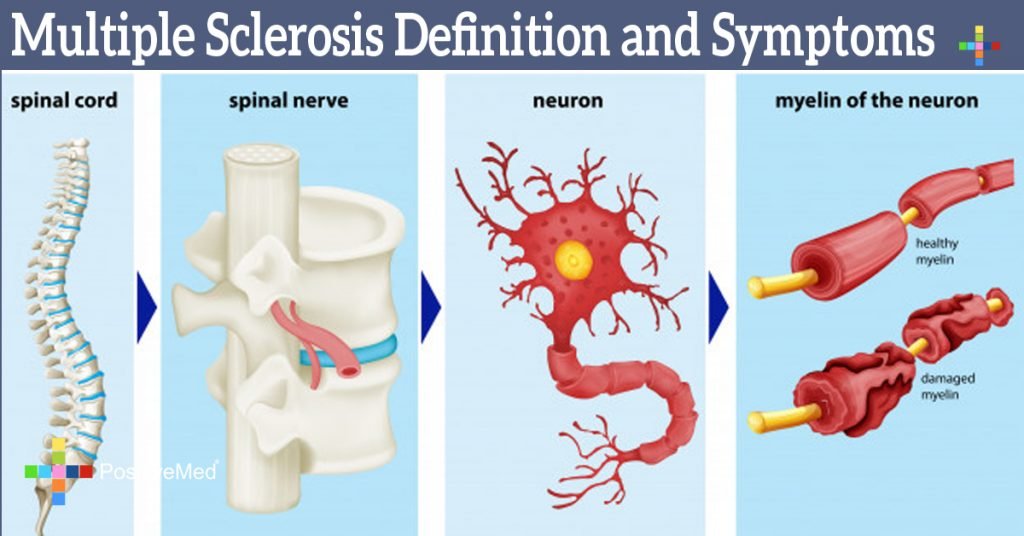
Multiple Sclerosis Definition and Symptoms
By PositiveMed-Team
Edited By Stephanie Dawson
Multiple sclerosis, more commonly known as MS, is a central nervous system disease that impacts the brain, spinal cord, and optic nerves. MS may be severe or mild. In severe cases of MS the patient might become paralyzed while in mild cases limbs may become numb.
MS destroys myelin, a layer of insulation that surrounds nerve fibers and allows the signals emitted by nerves to travel across different parts of the body. Destruction of myelin disrupts the signals which results in loss of control over various parts of the body. MS may cause blindness in some cases. MS was discovered in the year 1868, however the exact cause of this disease is still unknown. Many experts believe that inflammation causes damage to the nerves.
There are various symptoms of MS which if detected and treated early may stop it from becoming a bigger and more severe problem. Some of the symptoms of MS are mentioned below.

1. Vision problems
The most common sign of early MS. If you have blurred vision in one or both eyes it can be an indication of MS. The optic nerves responsible for central vision are affected by inflammation and sometimes cause double vision followed by pain in the eyes.
2. Frequent weakness and/or fatigue
If you have not done anything that requires a lot of physical effort and still you are feeling as if you have taken 3 rounds of the Olympic track, it can be a sign of MS. Unexplained tiredness is an early sign of MS and is observed in almost 80% of the people with the disease. This generally happens because of deterioration of nerves in the spinal column.
3. Cognitive problems
Studies have shown that almost 50% of people suffering from MS develop some kind of cognitive problem which may include loss of memory, disorganization, lack of attention, and language problems with languages. In severe cases depression and emotional imbalance may also come up.
4. Numbness
Since MS disrupts the signals emitted by the brain and does not let them reach the correct destination, some parts of the body become numb. Body parts like face, arms, legs, and fingers are more prone to numbness from this. It may also send contradicting signals across the body which the body parts fail to understand and do not perform the desired action.
5. Bowel problems
More than 50% of people with MS develop bowel problems like constipation. It can lead to fecal impaction in some cases. If the fecal impaction is not treated properly it can result in bowel incontinence, or the inability to control bowl movements.
6. Gait
Gait refers to the way people walk. People with MS often have problems with gait because their muscles become weak, they feel tired easily, and their bodies do not always follow commands as desired. Inability to maintain balance and vertigo can also be responsible for this problem.
7. Bladder disorders
People with MS often go to the bathroom more frequently because they have difficulty emptying the bladder completely. Sometimes they do not have control over their urine and may feel the urge to pass it frequently especially during the night. It also includes the uncontrollable urge to pass urine.
8. Lovemaking problems
Lower libido can also be a sign of MS. People with MS often report decreased love drive, reduced satisfaction response, and impaired sensation. Statistics show more than 90% male victims of this disease suffer from this problem.
Some less common symptoms of MS include headache, loss of hearing, speech disorders, tremor, and itching.





